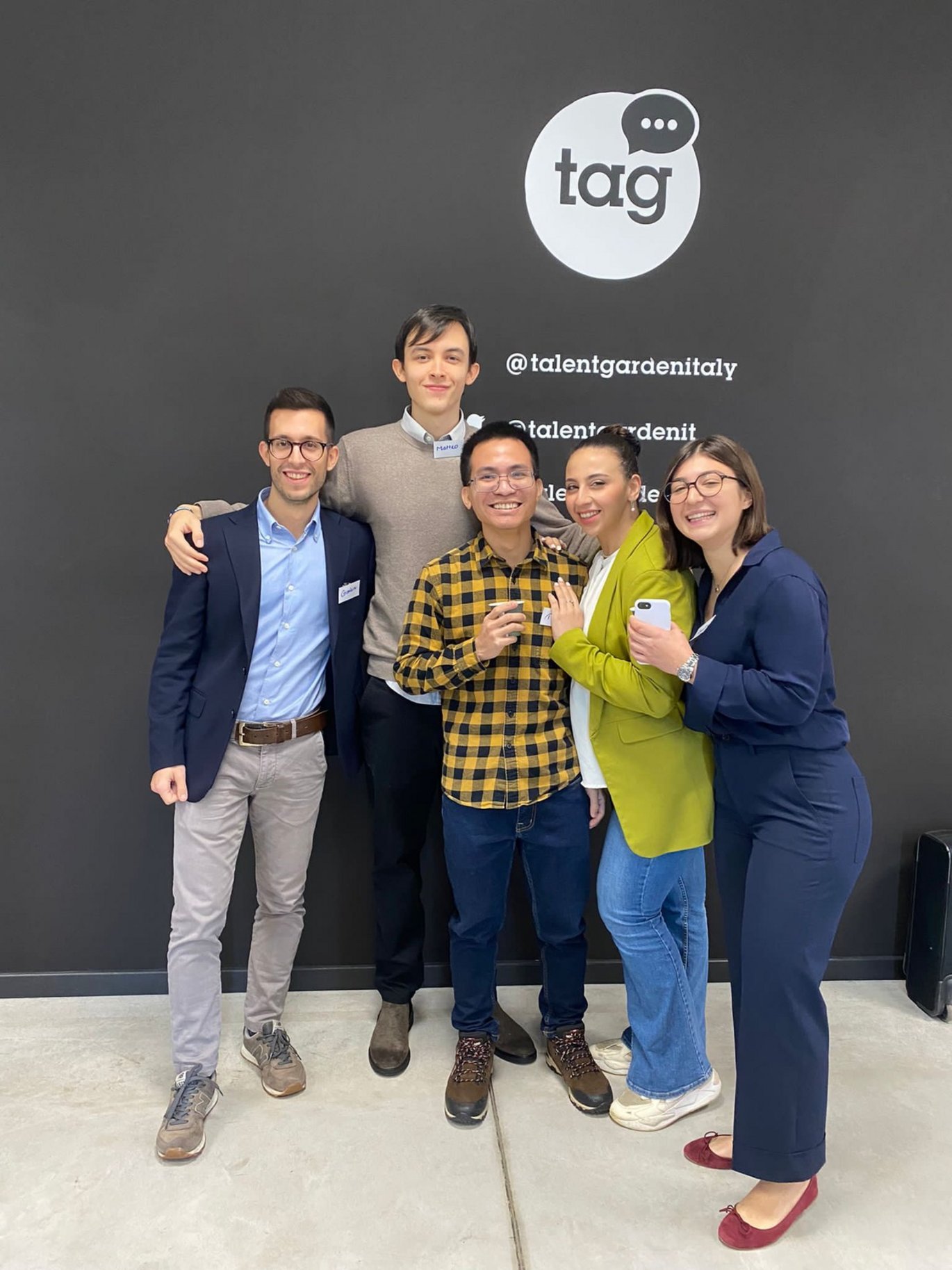Students turn crab shells into food packaging
Students from Aarhus University have a new solution for biodegradable packaging using crab shell waste. For this they won the EIT Food Reuse2Repack competition.

Most of packaging of frozen food is currently made with plastic in order to preserve the food and its aroma. To come up with a more sustainable alternative, Minh Tuan, and a group of fellow students at Food Science at Aarhus University founded Seapack and entered the EIT Food Reuse2Repack competition in Rome. Their invention earned them the first prize.
What they invented was a new, cheaper, and more environmentally friendly way to produce a biodegradable coating for paper, which can be used inside paper bags for frozen foods, thereby eliminating plastic. Their coating makes the packaging fully compostable.
To make the coating as environmentally friendly as possible the Seapack team used shells from snow crabs, a waste product in the seafood industry. The shells from crabs and shrimps contain chitosan, which can be extracted and used to prepare a coating for paper bags for frozen food. The Seapack team developed a new way of extract the chitosan more sustainably, and then transformed the chitosan into a film that they stuck to the inside of packaging material.
AU Food is a strong partner in the EIT Food ecosystem, and the mentors in the Department Sandra Gregersen, Ilke Unalan, Ece Sogut and Milena Corredig, are committed to facilitating, every year, the development of business ideas in the food solution program. They collaborate very closely with the MAPP Centre, where Professor Liisa Lähteenmäki is instrumental in helping the students in developing a sound stakeholder analysis and business model.
Minh Tuan, one of the students on the Seapack team, is happy for the opportunity to take part in the EIT Food Programme. “During the program, we sharpened our idea and discussed with potential end users to develop a new compostable packaging material, which replaces plastic use for a better planet,” he said.
Minh Tuan explained that it was challenging to work with all parts of the business case, from finances, market analyses to the product innovation itself.
In order to secure the business case of their product the students interviewed and worked with relevant stakeholders: Royal Greenland producing seafood, on crab waste; Schur, producing packaging on market trends and Flensted, doing food wholesales, on consumer perspectives. A big thank you for helping the students develop such a winning concept.
“We are currently looking into the next steps of developing our product,” said Minh Tuan. The Seapack team is now testing the packaging on french fries and vegetables and they are investigating the opportunities for patenting their invention.
Participation in the competition and development of the packaging was done in collaboration between AU FOOD and AU MAPP. EIT Food is a programme co-funded by the European Commission.
Supplerende oplysninger | |
Vi bestræber os på, at alle vores artikler lever op til Danske Universiteters principper for god forskningskommunikation. På den baggrund er artiklen suppleret med følgende oplysninger: | |
Finansiering Eventuelle eksterne bevillinger til forskningsprojektet nævnes. | EIT Food financed the program |
Samarbejdspartnere Angiv eventuelle interne og eksterne samarbejdspartnere, der har bidraget til forskningsresultaternes tilblivelse. | EIT Food, Industries: Royal Greenland, Flensted, Schur were interviewed to understand stakeholder needs and to have up to date data on usage and costs. They had no influence in the development of the research concept. |
Ekstern kommentering Hvis eksterne samarbejdspartner har haft mulighed for at kommentere hele eller dele af denne artikel, nævnes det her. | EIT Food per contract, requires to be provided with a draft document |
Interessekonflikter Angiv eventuelle forhold omkring inhabilitet, patentansøgninger, interesseorganisationers og virksomheders medvirken i denne artikel. | Ingen kendte |
Læs mere Link til videnskabelig artikel, DCA-rapport eller andet relevant materiale. | |
Kontakt Benævn den eller de personer, der har bidraget med viden og baggrund til artiklen. | Professor Milena Corredig, AU Food |
